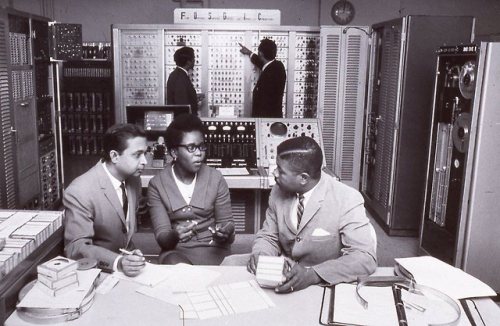Techinfinity - Infinite Technology
More Posts from Techinfinity and Others
Setting the Story Straight on AI
In the movie Ex Machina (2014), a technologist creates a robot that is so lifelike and self-aware that she can pass for human. When her inventor tasks a young programmer with testing the limits of her capabilities, she surprises both men with her capacity for creativity and deception.

While this makes for an entertaining storyline, the reality is that we’re still a long way from seeing robots of any real sophistication when it comes to true artificial intelligence (AI). Articles in newspapers and on media sites would have you think otherwise, often positioning robots, machine learning systems, and even algorithms as different types of AI.
However, while these kinds of systems are developed while working on AI research and development, they don’t display any real intelligence.
Complete Read Here: Setting the Story Straight on AI

Automation is the Key to Better Patient Care
Automation has become an integral part of daily life and a necessity for carrying out different processes across various industries including healthcare. Automation acts as the silver bullet for health care providers, who often face seemingly inconsistent demands with regard to cost reductions, efficient service to patients, and improved quality of care.
It’s important for healthcare providers to ensure that their services run smoothly and that they aren’t compromising the patient experience to achieve it, and one way to ensure that is to automate daily processes such as administering non-intravenous medications, data collection, reading radiological scans, and more such complex activities.

Automation would save time by carrying out repetitive tasks, reduce labor costs, increase precision and reduce errors—making it possible to acquire real-time data thereby enabling to provide improved diagnosis and allowing healthcare professionals to focus on other core processes.
For instance, appointment reminder systems like JustReminIt and TeleVox automate the process of reminding patients about their appointments. Instead of calling each patient, these systems automatically remind people of their upcoming schedules or remind them of their missed ones; through customized messages
Read More
A global provider of real-time, multi-asset financial market data and solutions, ACTIV Financial, has launched a software ticker plant and a content management platform, which capitalizes on advances in CPU technology and kernel-bypass networking.

With blockchain, ocean plastic has met its bottleneck.
What’s a great way to celebrate World Oceans Day? Honor the people and businesses working to save our oceans. One company’s solution is simple—Plastic Bank is incentivizing people to keep plastic on land by turning it into a new kind of currency. In developing countries, locals can bring their plastic waste to a collection center and trade it for digital tokens leveraging IBM Blockchain technology that can be exchanged for goods from participating merchants. In regions where bank accounts are rare, and crime and corruption are prevalent, Plastic Bank’s blockchain-powered currency offers a secure, portable alternative. With their mission to keep oceans clean while financially empowering communities, Plastic Bank is more than deserving of World Oceans Day accolades.
Learn more about Plastic Bank ->
Ebène Cybercity was built 15 years ago to create a modern working environment for Mauritians and bring a hi-tech hub to this island nation. So does it offer a roadmap for Africa - or a warning of problems ahead?

U.S. Census Bureau employees, circa 1960s, with the Film Optical Sensing Device for Input to Computers (FOSDIC), a device used to transfer data from paper questionnaires to microfilm.

These Technologies are best to invest in Dubai Right Now!!!
https://techwalah.blogspot.com/2020/08/dubai-facts-interesting-technological.htmlDubai

Race captured by a drone looks like a race car game
Apac Biotech Startups News and Updates
Check out Biotech Startups in Apac with accelerating technology updates across BioTech Startups
-
 techinfinity reblogged this · 6 years ago
techinfinity reblogged this · 6 years ago -
 yourheroacademyyt-blog liked this · 6 years ago
yourheroacademyyt-blog liked this · 6 years ago -
 goofy-2-blog liked this · 6 years ago
goofy-2-blog liked this · 6 years ago -
 neil-place reblogged this · 6 years ago
neil-place reblogged this · 6 years ago -
 neil-place liked this · 6 years ago
neil-place liked this · 6 years ago -
 forbes reblogged this · 6 years ago
forbes reblogged this · 6 years ago

Your Daily dose of Latest Technology Updates, news, articles across various Industry Sectors
267 posts

